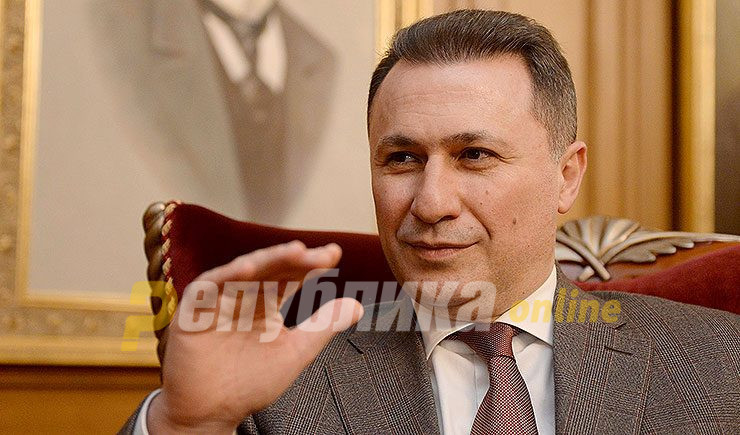Former Prime Minister and VMRO leader Nikola Gruevski strongly reacted to the recent statement from newly elected Bulgarian Prime Minister Kiril Petkov, who denied that there is a Macedonian minority Bulgarian. Petkov made the statement days ahead of his visit to Macedonia, even as he demands that Macedonia ensures a special place for the minority rights of its ethnic Bulgarians.
How come Bulgaria wants Macedonia to amend its Constitution to list the Macedonian citizens of a Bulgarian identity in it, but at the same time, the issue of the Macedonians in Bulgaria should not be discussed? Is this the right of the mightier party on display?, Gruevski asks in a social media comment. He warns that Petkov’s comment exposes ethnic Macedonians in Bulgaria to hatred and recriminations, and makes them especially vulnerable.
In his comment, Gruevski shared a video from the plight of ethnic Macedonians in the region of Pirin Macedonia, now in south-western Bulgaria, who were recognized as ethnic Macedonians by the first post-war Bulgarian administration, that of Georgi Dimitrov. The following Zhivkov regime reversed its policy and began to insist that all citizens of Bulgaria are Bulgarians.
Where did these people, you see in this 30 minute long documentary film, recorded just 30 years ago, and their descendants disappear? The censuses Bulgaria conducted in the 1950ies, in which 180,000 people declared as Macedonians, who performed these censuses? It is not becoming of a Prime Minister with such high levels of education to come to a neighboring country openly telling untruths and insulting the Macedonians in Macedonia and in Bulgaria, who are his fellow citizens. He certainly did not learn this from Michael Porter, Gruevski writes, referring to the Harvard professor. The first bit of information about the new Prime Minister Petkov in the international press is that he is Harvard educated.
Gruevski adds that he understands the predicament Petkov is in. “He is afraid to stand up to the commonly accepted positions in Bulgaria about Macedonia so early in his term. But he sought and won mandate to conduct changes. Isn’t he from a pro-European party? Isn’t Strasbourg a European court? Is there another example in the EU, since its founding, that the accession process of a country is blocked to coerce it to accept changes in past events, in its history, from 70, 80 or a 100 years ago? If the “changes continue”, as his party declares, one of those changes needs to be a new attitude toward the truth about the Macedonians and the Macedonian minority in Bulgaria… Macedonians and Bulgarians were and should be close, the closest nations. And they will be, once politicians from our neighboring country stop to treat the Macedonian issue only through the prism of the votes they expect in the next elections, and leave the problems to those that come after them to be resolved… If Macedonia is the child of Bulgaria, as Bulgarian politicians often say, without giving an opinion on this claim, I would say that, if Bulgaria feels that it is Macedonia’s mother, it should show motherly, unconditional love. Not the conditional, fatherly kind – do this if you want to receive that, Gruevski concludes.
Ahead of Petkov’s visit, the newly appointed Macedonian Prime Minister Dimitar Kovacevski said that he will not raise the Macedonian minority issue in Bulgaria. Petkov, on the other hand, is expected to push very strongly on the demands of ethnic Bulgarians in Macedonia, and this is now a key condition Bulgaria raised before Macedonia.




Comments are closed for this post.